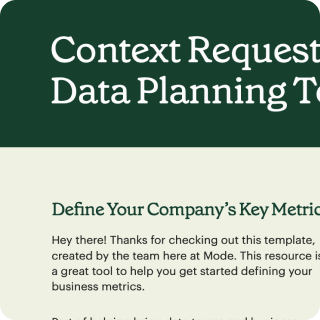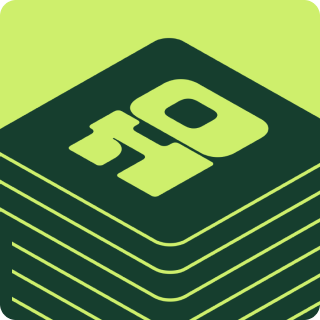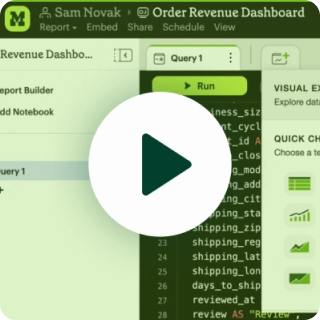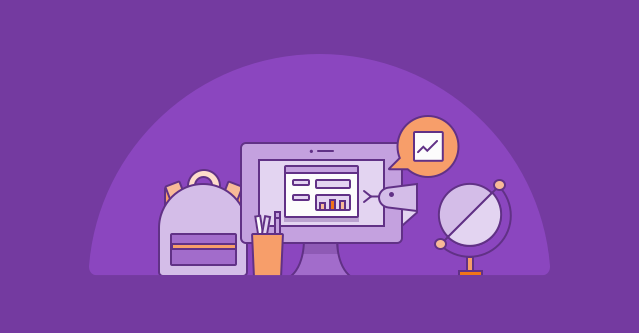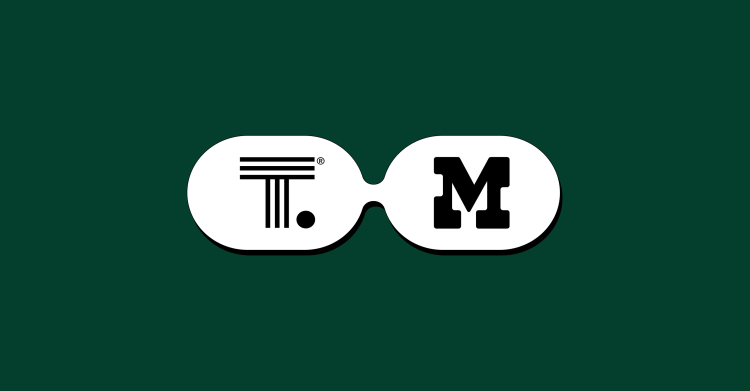For folks hoping to make a career switch to data science, there are a ton of questions to tackle: Which languages should I learn? Which skills do I need? Should I shell out money for a training program? But most of all, you might be wondering, Where do I start?
With this guide, we hope to provide a starting point. It doesn't just list (mostly online) resources for learning data science skills; it also includes content about what it's like to be a data scientist, tips for interviewing, and stories from people who've made it.
Is becoming a data scientist the right career move for you?
Before you dive in, ask yourself a few questions: Do you feel comfortable with the prospect of switching your career path and (perhaps) starting from scratch? Do you want to become a data scientist because it's an in-demand career or because you genuinely think you'll enjoy the work?
The best way to find the answers is to seek out posts and videos detailing professional data scientists' day-to-day routines. See if their work excites you or makes you want to hit the snooze button.
- How to Become a Data Scientist: What is Data Science? (Experfy)
- Getting your first job in data science (Jean-Nicholas Hould)
- What is a data scientist? (Quora)
- What are the downsides of being a data scientist? (Quora)
- [BOOK] Data Scientists at Work (Sebastian Gutierrez)
- [VIDEO] The Life of a Data Scientist (Josh Wills)
- [VIDEO] Dirty Secrets of Data Science (Hilary Mason)
- The Life of a Data Scientist (Master's in Data Science)
- Data Science Career Paths: Different Roles in the Industry (Springboard)
- Mid-Life Journey to Data Science (Predictive Analytics Times)
- The Definitive Q&A for Aspiring Data Scientists (Converge)
Tales from the transition trenches
It's often helpful to see how others have handled the transition to a data science career: their expectations, projects, and learnings. (Note: many of these articles focus on the transition from academia to the business world.)
- One year as a Data Scientist at Stack Overflow (David Robinson)
- Academia to Industry: Data Science Myths and Truths (Insight Data Science)
- Quantifying my Transition from Academia to Data Science (MultiThreaded)
- From Science to Data Science, a Comprehensive Guide for Transition (KDNuggets)
- A Growth Hacker's Journey – At the right place at the right time (Converge)
- [BLOG] Becoming a Data Scientist (Renee Teate)
Free online resources for skill-honing
Now that you know you're ready to make the move, you need to add some skills to your repertoire. Let's start general. Here are a two long lists of learning resources on pretty much every data science topic out there.
- How can I become a data scientist? (Quora)
- Data Science Trello Board (Kai Xin THIA)
Below are skill-specific resources, inspired by many of the skills listed in this post by Udacity.
Statistics
At the very minimum, you should have an understanding of what's covered in a typical beginner's stats class: statistical tests, distributions, linear regression, etc.
- Probability and Statistics (Carnegie Mellon)
- Statistics 101: Probability (Harvard)
- Statistics with R (Duke)
- Online Statistics Education: An Interactive Multimedia Course of Study (OnlineStatBook)
- Statlect: The Digital Textbook (Marco Taboga)
SQL and databases
Before you begin analysis, you need data. Most data you'll work with “on the job” is stored in relational databases. SQL (Structured Query Language) is the tool most often used to pull data.
- SQL: The Prequel (Excel vs. Databases) (School of Data)
- Spreadsheet Thinking vs. Database Thinking (eagereyes)
- How to Make the Leap from Excel to SQL (Mode)
- Explaining Non-Relational (and Relational) Databases To My Mom (Ignored by Dinosaurs)
- Mode's SQL Tutorial for Data Analysis (Mode)
Python
Python is a free and open-source programming language that's become increasingly popular for analysis. This is in part because Python has many robust libraries (bundles of code made to help you accomplish routine tasks more quickly) for data manipulation, visualization, machine learning, and more. For library-specific tutorials, check out this collection of resources.
- The Open-Source Data Science Masters (Clare Corthell)
- Problem Solving with Algorithms and Data Structures (Runestone Interactive)
- Top 8 resources for learning data analysis with pandas (Data School)
- Mode's Python Tutorial for Data Analysis (Mode)
- Python Libraries Wiki (Mode)
R
Like Python, R is a free, open-source programming language. While Python started out as a language for developers, R was purpose-built for statistical computing and graphics. R packages are roughly the equivalent of Python libraries.
- A Complete Tutorial to learn Data Science in R from Scratch (Analytics Vidhya)
- Free resources for learning R (CrossValidated)
- R Resources (Clare Corthell)
- Introduction to R (DataCamp)
Note: Choosing Python or R for data science is a complex and oft-debated topic. If you want to go down that rabbit hole, start with this massive infographic from the folks at DataCamp.
Machine learning
Depending on the company and your position, you may not need to do any machine learning, but it doesn't hurt to know the basics—especially which techniques are appropriate in certain situations.
- Best Machine Learning Resources for Getting Started (Machine Learning Mastery)
- How do I learn machine learning? (Quora)
- The Best Advice From Quora on 'How to Learn Machine Learning' (KDNuggets)
- Machine Learning (Stanford) (also available as a YouTube playlist)
- Machine Learning Foundations: A Case Study Approach (University of Washington)
- Awesome Machine Learning (Joseph Misiti) - A GitHub repo of frameworks, libraries and software across various languages.
Data visualization and storytelling
Although visualization is part of a data scientist's workflow, it's its own craft—living at the nexus of analysis, design, and communication. Good storytelling is especially important, because analysis isn’t just finding insights—it’s explaining them to your coworkers.
- Data visualization tools (Visualising Data)
- Teaching data visualization: Recommended readings and resources (MulinBlog)
- Data Storytelling: The Ultimate Collection of Resources (Juice Analytics)
- [BOOK] Storytelling with Data (Cole Nussbaumer)
- [BOOK] Data Visualisation: A Handbook for Data Driven Design (Andy Kirk)
Bootcamps and resources
If you're looking for training with a structured curriculum, a bootcamp or an online course might be the way to go. For tips on evaluating bootcamps, check out this guide. Also, check out this huge list from Kirk Borne: Where to get your Data Science Training or Apprenticeship.
The first three programs listed are bootcamps that help their grads with job placement. Alumni have gone onto work at companies like Amazon, Asana, and Jawbone. The latter three offer online courses on a variety of data science topics, so you're sure to find something that sparks your interest.
Think an advanced degree is right for you? The Master's in Data Science website profiles graduate degree programs in the U.S. and online.
Interviewing
The time has come. You've spent countless hours preparing. You're ready to put yourself on the job market. Thankfully, a ton of folks have written about their experiences interviewing for data science roles.
- Crushed it! Landing a data science job (Erin Shellman)
- What it's like to be on the data science job market (Trey Causey)
- Building a data science portfolio: Storytelling with data (DataQuest.io)
- 5 secrets for writing the perfect data scientist resume (The Data Incubator)
- [VIDEO] What it's Like to Interview as a Data Scientist (Dose of Data)
- [VIDEO] Lessons Learned the Hard Way: Hacking the Data Science Interview (Galvanize)
- Questions From Data Science Interviews (Udacity)
Further learning
The learning doesn't stop after you've landed a data science job. Here are some options for staying on top of news stories, trends, and new resources.
Blogs
KDNuggets, a great data science blog in its own right, has a comprehensive list of active data blogs. Start there.
Newsletters
- Data Science Weekly
- Data Elixir
- Data Driven Daily
- The Analytics Dispatch (archive here)
- Postgres Weekly
- Python Weekly
- O'Reilly Data Newsletter
Podcasts
Communities
Have you made the leap?
Have you switched to a data science career? Maybe you're on your way there? We'd love to hear your story! Share your experiences and any additional resources in the comments.
